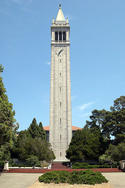The Census Bureau just finished releasing all of the state redistricting file information from the 2010 Census, giving us a now complete portrait of population change for the entire country. Population growth continued to be heavily concentrated in suburban metropolitan counties while many rural areas, particularly in the Great Plains, continue to shrink. read more »
Small Cities
Why North Dakota Is Booming
Living on the harsh, wind-swept northern Great Plains, North Dakotans lean towards the practical in economic development. Finding themselves sitting on prodigious pools of oil—estimated by the state's Department of Mineral Resources at least 4.3 billion barrels—they are out drilling like mad. And the state is booming. read more »
Regional Efficiency: The Swiss Model?
Given that no one likes Switzerland’s banks, coo-coo clocks, high prices, smugness, dull cities, cheesy foods, or yodeling, I realize that it is too early to speak politically about “the Swiss Model.” But it needs to be pointed out that while the European Union evaporates and Homeland America goes for broke, the world’s second oldest democracy (1291) has trade and budget surpluses, a multi-lingual population, a green network of trains and buses to every village, excellent public schools, and a federal-style government that is closer to Thomas Jefferson’s America than the bureaucrati read more »
The Midwest: Coming Back?
Oh my name it is nothing
My age it is less
The country I come from
Is called the Midwest
–Bob Dylan, “With God on Our Side,” 1964
For nearly a half century since the Minnesota-raised Robert Zimmerman wrote those lines, the American Midwest has widely been seen as a “loser” region–a place from which talented people have fled for better opportunities. Those Midwesterners seeking greater, glitzier futures historically have headed to the great coastal cities of Miami, New York, San Diego or Seattle, leaving behind the flat expanses of the nation’s mid-section for the slower-witted, or at least less imaginative. read more »
Agglomeration Vs. Isolation for Science Based Economic Development
Earlier this month President Obama signed the reauthorization of the COMPETES Act, which provides federal funding for science initiatives aimed at enhancing economic competitiveness. In addition to shoring up agencies like the National Science Foundation, the bill called on the Department of Commerce to create a new program charged with supporting the development of research parks and regional innovation clusters. Unheard of before World War II, these entities today represent the cutting edge in what insiders call TBED: technology-based economic development. read more »
GIS and Online Mapping: Stretching the Truth Scale
When I began my land planning career in 1968, one of the first things I learned about was the use of the Rubber Scale. What is it? Rubber Scale was a term used by civil engineers and land surveyors to describe an inaccurate plan that ignored the physical limitations of the existing terrain. To say that the planner or architect had used a Rubber Scale to create a beautifully rendered plan with pastel colors and soft shadows cast from tree stamps was a negative comment, since these plans were pretty much worthless to the engineer and surveyor that had to make the plans conform to regulations. read more »
The Dispersing of Urbanism
For more than a century, people have been moving by the millions to larger urban areas from smaller urban areas and rural areas. Within the last five years, the share of the world population living in rural areas has dropped below one-half for the first time. The migration to the larger urban areas has spread to lower income nations as the countryside seemingly empties into places like Chongqing, Jakarta and Delhi. read more »
Education Wars: The New Battle For Brains
The end of stimulus — as well as the power shift in Congress — will have a profound effect on which regions and states can position themselves for the longer-term recovery. Nowhere will this be more critical than in the battle for brains.
In the past, and the present, places have competed for smart, high-skilled newcomers by building impressive physical infrastructure and offering incentives and inducements for companies or individuals. But the battle for the brains — and for long-term growth — is increasingly tied to whether a state can maintain or expand its state-supported higher education. This is particularly critical given the growing student debt crisis, which may make public institutions even more attractive to top students. read more »
The Rise of the Efficient City
Smaller, more nimble urban regions promise a better life than the congested megalopolis.
Most of the world's population now lives in cities. To many academics, planners and developers, that means that the future will be dominated by what urban theorist Saskia Sassen calls "new geographies of centrality." According to this view, dense, urban centers with populations in excess of 20 million—such as metropolitan Tokyo, New Delhi, Sao Paolo and New York—are best suited to control the commanding heights of global economics and culture in the coming epoch. read more »
Amtrak Fails To Weather The Storms
Why do I persist in riding Amtrak, the short name for the National Railroad Passenger Corporation, a company originally owned by the freight railways, but now subsidized by Congress and run like a Russian bureaucracy, complete with late trains, sullen employees, myriad petty regulations, budget deficits, cold coffee, feather bedding, broken seats, clogged toilets, rail cars that feel like buses, and a schedule that serves the interests of congressmen, lobbyists, unions, budget stimulators, and small-town mayors, but rarely passengers? read more »





















